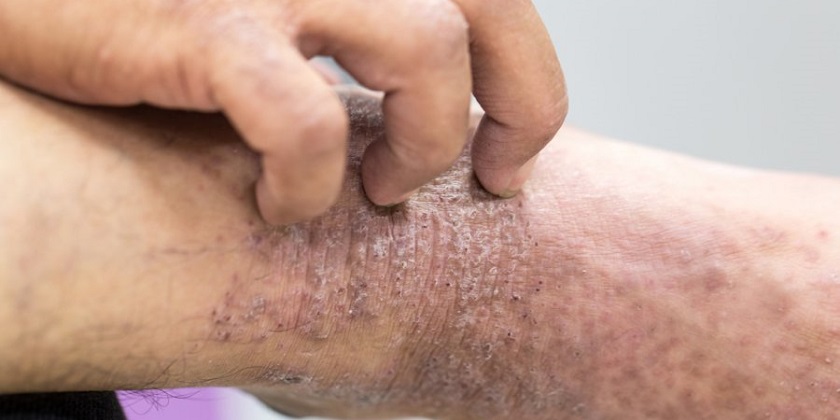- Home
- Dermatitis Treatment

Overview
Dermatitis is a general term that describes an inflammation of the skin. Dermatitis can have many causes and occurs in many forms. It usually involves an itchy rash on swollen, reddened skin.
Skin affected by dermatitis may blister, ooze, develop a crust or flake off. Examples of dermatitis include atopic dermatitis (eczema), dandruff and rashes caused by contact with any of a number of substances, such as poison ivy, soaps and jewelry with nickel in it.
Dermatitis is a common condition that's not contagious, but it can make you feel uncomfortable and self-conscious. A combination of self-care steps and medications can help you treat dermatitis.
Symptoms:
Each type of dermatitis may look a little different and tends to occur on different parts of your body. The most common types of dermatitis include:
- Atopic dermatitis (eczema). Usually beginning in infancy, this red, itchy rash most commonly occurs where the skin flexes — inside the elbows, behind the knees and the front of the neck. When scratched, the rash can leak fluid and crust over. People with atopic dermatitis may experience improvement and then flare-ups.
- Contact dermatitis. This rash occurs on areas of the body that have come into contact with substances that either irritate the skin or cause an allergic reaction, such as poison ivy, soap and essential oils. The red rash may burn, sting or itch. Blisters may develop.
- Seborrheic dermatitis. This condition causes scaly patches, red skin and stubborn dandruff. It usually affects oily areas of the body, such as the face, upper chest and back. It can be a long-term condition with periods of remission and flare-ups. In infants, this disorder is known as cradle cap.
When to see a doctor
See your doctor if:
- You're so uncomfortable that you are losing sleep or are distracted from your daily routines
- Your skin becomes painful
- You suspect your skin is infected
- You've tried self-care steps without success
Causes:
A number of health conditions, allergies, genetic factors and irritants can cause different types of dermatitis:
- Atopic dermatitis (eczema). This form of dermatitis is likely related to a mix of factors, including dry skin, a gene variation, an immune system dysfunction, bacteria on the skin and environmental conditions.
- Contact dermatitis. This condition results from direct contact with one of many irritants or allergens — such as poison ivy, jewelry containing nickel, cleaning products, perfumes, cosmetics, and even the preservatives in many creams and lotions.
- Seborrheic dermatitis. This condition may be caused by a yeast (fungus) that is in the oil secretion on the skin. People with seborrheic dermatitis may notice their condition tends to come and go depending on the season.

